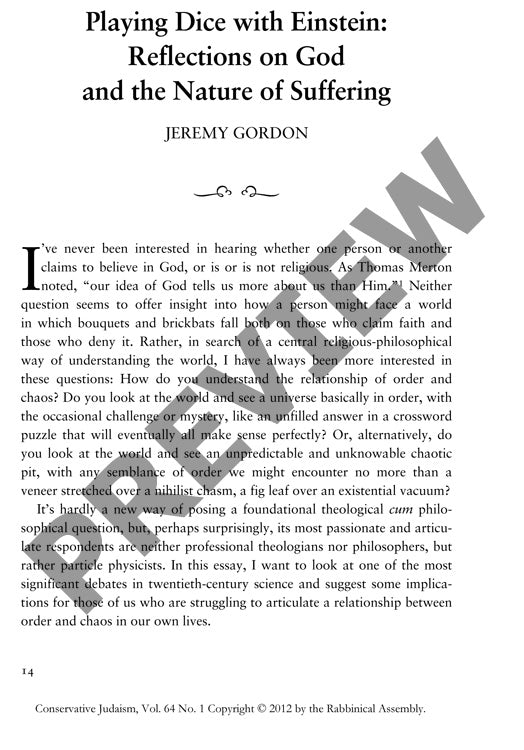Playing Dice with Einstein
Couldn't load pickup availability
This essay examines the theological implications of the fundamental physics debate between Albert Einstein and Niels Bohr regarding determinism versus quantum indeterminacy, applying these scientific perspectives to Jewish understandings of suffering and divine order. The methodology employs comparative analysis between quantum mechanical principles and rabbinic interpretations of the relationship between righteousness and reward. The study traces Einstein's deterministic worldview, which held that the universe operates according to strict cause-and-effect principles, against Bohr's quantum mechanics, which demonstrates fundamental uncertainty at the subatomic level. The author applies this scientific framework to the classical theological problem articulated in Talmudic literature: why righteous people sometimes suffer while wicked people prosper. The analysis reveals that traditional Jewish responses to suffering parallel the physics debate, with some authorities preserving causal connections through expanded temporal or generational frameworks, while others, like Rabbi Meir, acknowledge divine indeterminacy in individual cases. The study concludes that Judaism, contrary to popular assumption, does not wholly embrace deterministic causation but rather reflects a nuanced position similar to quantum mechanics: predictable patterns exist at general levels, but individual cases may lack discernible causation. This perspective offers pastoral advantages by relieving sufferers from futile searches for explanatory mechanisms while maintaining overall cosmic order.

More Information
-
Physical Description
-
Publication Information
Published 2012
ISBN
-
Publication Credits

